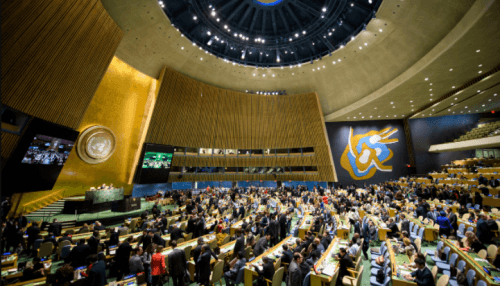The International Chamber of Shipping (ICS) and Internatiional Transport Workers’ Federation (ITF) are calling on the United Nations to keep ports open and facilitate crew changes in order to keep maritime commerce moving amid the COVID-19 pandemic.
“As the COVID-19 pandemic takes hold, it is important for the world’s governments to fully understand that around 90% of global trade is transported by commercial shipping, which moves the world’s food, energy and raw materials, as well as manufactured goods and components – including vital medical supplies and many products sold in supermarkets, items that are necessary (due to complex supply chains) for the preservation of many jobs in manufacturing – without which modern society simply cannot function. In this time of global crisis, it is more important than ever to keep supply chains open and maritime trade and transport moving,” the ICS and ITF wrote in a letter to the Secretary-Generals of various United Nations’ agencies.
In particular, this means keeping the world’s ports open for vessel calls by commercial ships, and facilitating crew changes and the movement of ships’ crews with as few obstacles as possible.
According to the letter, each month around 100,000 seafarers need to be changed over in order to comply with relevant international maritime regulations, governing safe working hours and crew welfare, so that they can continue to transport global trade safely.
The letter continues: “We therefore wish to emphasise the vital need for the world’s professional merchant seafarers to be granted appropriate exemptions from any national travel restrictions, when joining or leaving their ships, in order to keep the world’s maritime supply chains functioning.
“In view of their vital role during the global pandemic, we suggest that professional seafarers, regardless of nationality, should be treated as any other international ‘key workers’, such as airline crew and medical personnel. As such, they should be afforded special consideration and, notwithstanding the need to comply with emergency health protocols, treated with pragmatism and understanding when seeking to travel to and from their ships.
“We therefore call on your organisations to highlight the critical importance of this issue with the governments of your member states.
“We request, as a matter of urgency, that this topic be added to the agenda of appropriate high level meetings, and that national authorities in your organisations’ member states should be encouraged to engage immediately with their national shipowners’ association and national seafarers’ union, in order to find rapid solutions to this serious problem which otherwise risks impeding global efforts to address the COVID-19 pandemic.”
The International Chamber Shipping represents the world’s national shipowners’ associations representing over 80% of the world’s merchant shipping tonnage, while the International Transport Workers’ Federation (ITF) speaks on behalf of the approximately two million seafarers who operate the world’s internationally-trading commercial ships.
